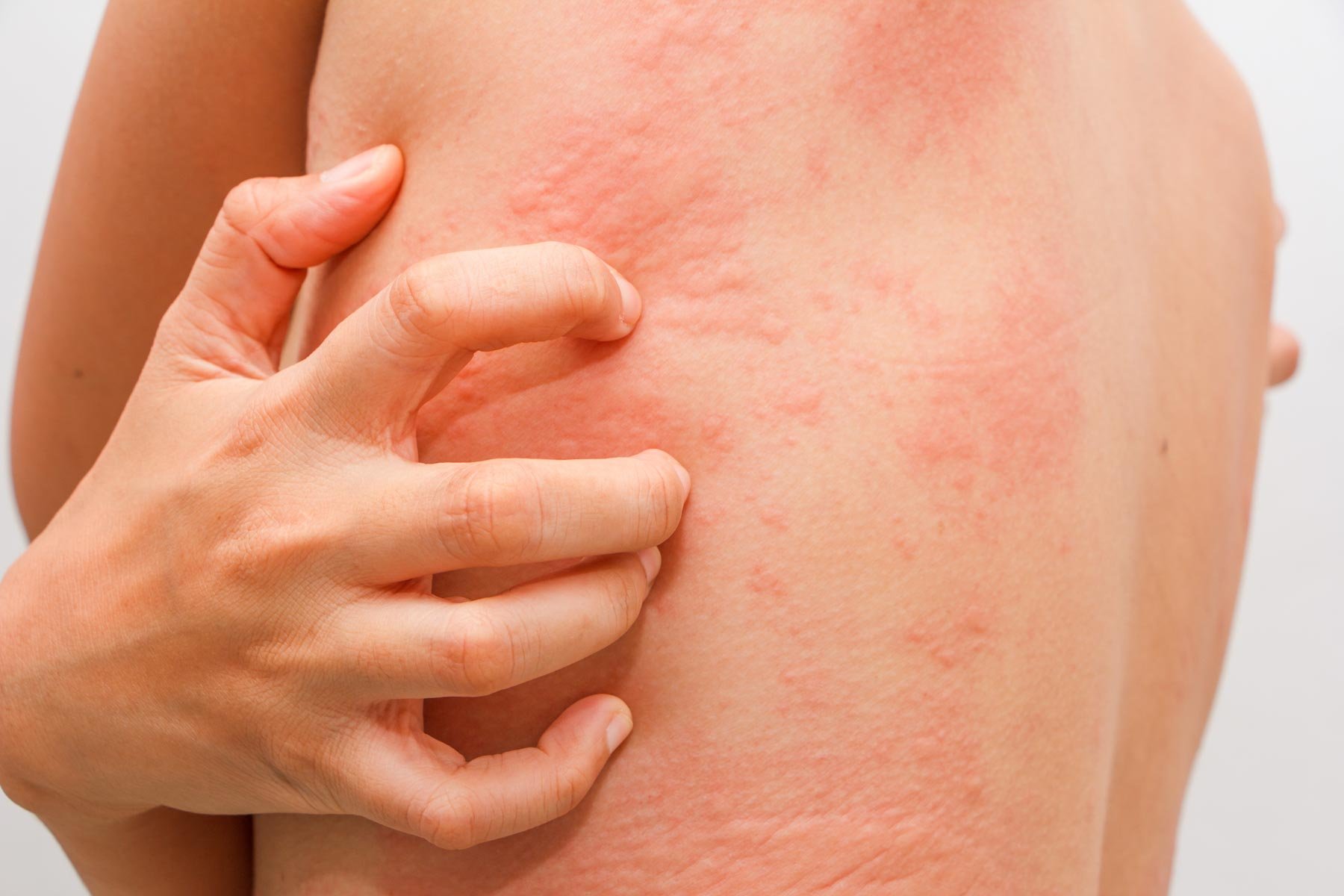
Hives
Hives, also known as urticaria, are a type of rash that appears as red, raised welts on the skin. They are often itchy and can range in size from a few millimeters to several inches in diameter. Hives can appear anywhere on the body and may be round or irregular in shape.
Hives are caused by the release of histamine and other chemicals from cells in the skin. These chemicals cause blood vessels in the skin to become leaky, leading to the formation of the raised welts characteristic of hives. Hives can be triggered by a variety of factors, including allergies, infections, medications, and physical stimuli such as heat or cold.
Hives can range in severity from mild to severe. In most cases, hives resolve on their own within a few days to a few weeks. However, in some cases, hives may be persistent and require treatment.
Treatment for hives may involve the use of medications to reduce inflammation and itching. Options may include:
Antihistamines: These medications block the action of histamine and can help to reduce itching and inflammation. They are available over the counter and by prescription.
Corticosteroids: These medications can help to reduce inflammation and may be used for more severe cases of hives. They are available by prescription.
Epinephrine: This medication can help to constrict blood vessels and reduce swelling. It may be used for severe cases of hives or for hives that are affecting the airway.
H2 blockers: These medications block the action of histamine on the stomach and can be used to treat hives that are accompanied by gastrointestinal symptoms such as abdominal pain or vomiting.
In addition to medications, avoiding triggers that cause hives can be helpful in managing the condition. If you are unsure what is triggering your hives, your healthcare provider may recommend allergy testing to help identify potential triggers.
Hives can be a frustrating and distressing condition, but with proper treatment, they can be effectively managed. If you are concerned about hives or think you may be experiencing an allergic reaction, it is important to speak with a healthcare provider. They can help to determine the cause of your symptoms and develop a treatment plan to help improve your skin health.

